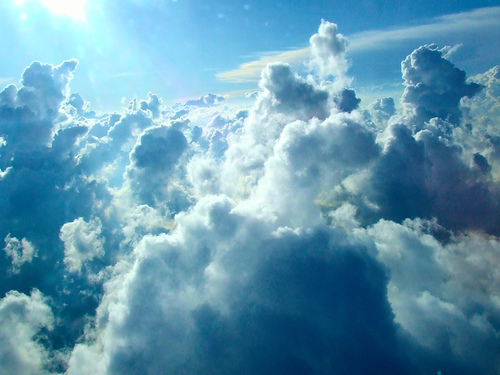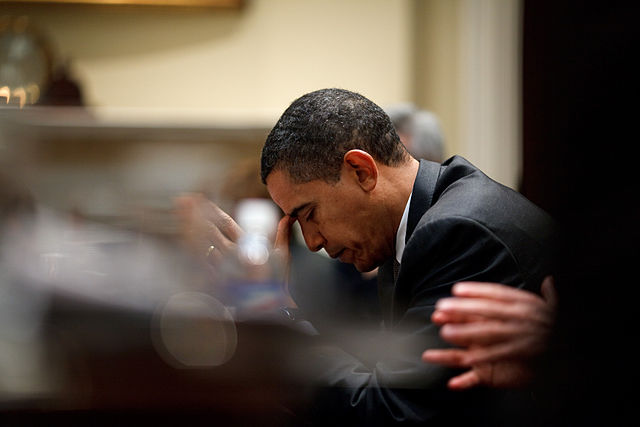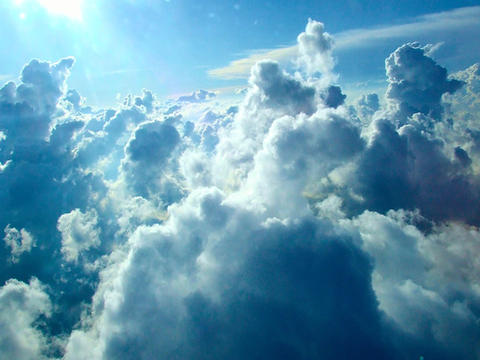This article reprinted with permission from Bollier.org.
So another climate change summit (Durban, South Africa) has produced no action, even in the face of mounting evidence of the deterioration of the planet's atmosphere. Climate change denial has now moved from the right-wing, wacko fringe to the pinnacles of “respectable” power as top government officials refuse to take serious action in the face of overwhelming scientific evidence (see Mark Hertsgaard's account of the Durban talks in The Nation.) Meanwhile, despite his 2008 campaign pledges to tackle global warming, President Obama has slipped into the shadows. He remains too indentured to corporatists, preferring to offer empty rhetorical feints of concern whenever the issue spikes into public consciousness.
How, then, might we save the atmospheric commons?
One of the most overlooked yet promising gambits is a series of “atmospheric trust” lawsuits that were filed in May 2011. This remarkable litigation campaign, which consists of lawsuits filed in all fifty state courts and in federal court on the same day, seek to force government to apply the venerable public trust doctrine to the atmosphere and protect it for future generations. (For more on the lawsuits, see this piece on Grist.)

The clouds outside the window of a plane en route to Washington, D.C. Photo credit: Karin Dalziel. Used under Creative Commons license.
As I explained in an earlier blog post, the basic claim in these landmark lawsuits is that “all governments hold natural resources in trust for their citizens and bear the fiducairy obligaiton to protest such resources for future generations,” as University of Oregon law professor Mary Wood puts it. Wood is one of the key legal thinkers behind this application of public trust doctrine. The Atmospheric Trust Litigation asks the courts to issue a declaratory judgment affirming this principle. It also wants the court to provide injunctive relief by drawing up a plan, based on authoritative scientific evidence, that would require mandatory reductions in carbon emissions.
State governments and the U.S. government are moving to dismiss the cases, of course. The federal case is now focused on a court hearing for a requested preliminary injunction. Originally scheduled for December 15 in San Francisco, the hearing has been moved to a Washington, D.C., court because of the national significance of the case. So we could begin to see some very interesting developments on this front.
The Obama Administration has been dancing around this issue for years, preferring not to commit itself or take serious action. A few months ago the administration once again evaded any commitment by delaying its approval for a proposed oil pipeline from Canada (whose associated carbon emissions would have been devastating for the atmosphere).
With the atmospheric trust lawsuit, however, it will be harder for the Obama Administration to dodge and weave its way around the facts about climate change or avoid its legal obligation to protect the atmosphere. The legal reasoning for the case is extremely solid, and a court venue offers a more serious, rigorous vehicle for addressing this issue than Congress, the press or the campaign stump.

President Barack Obama reflects during a budget meeting in the Roosevelt Room April 27, 2009. Official White House Photo by Pete Souza. Used under Creative Commons license.
Although the atmospheric trust lawsuit asks the court to make an unprecedented new application of public trust principles (historically, the public trust doctrine has applied mostly to bodies of water and other shared natural resources), the legal circumstances and remedies fit the classic patterns of public trust case law. Public trust doctrine is no marginal body of law. It has deep roots in antiquity and has long been a part of American law.
The argument for the preliminary injunction is that any delay in addressing climate change could result in further harm to the plaintiffs. The plaintiffs in this case are teenagers whose futures are seriously jeopardized by the failure of government to fulfill its public-trust obligations under law.
The preliminary injunction seeks to force the government to prepare a plan by March 2012 that would cap national CO2 emissions at 2011 levels and reduce them by 6 percent every year starting in 2013. An impressive array of scientists, including NASA's James Hansen, is supporting the litigation, and an impressive roster of environmental law scholars (including Gus Speth, Joseph Sax, Gerald Torres, Eric Freyfogle, Burns Weston, and others) has filed an amicus brief (which I've attached here as a pdf file.)
The dysfunctionality of the American system of government has been on full display as the legislative and executive branches ignore the most urgent issue of our time and perhaps of human civilization. Will the federal courts make like an ostrich, too, and ignore the clear legal standards of the public trust doctrine? Or will they serve their historic role of recognizing legal and scientific truths that the political branches wish to avoid? We shall soon see.
###
Related articles on Bollier.org:
The Healing Logic of the Commons









